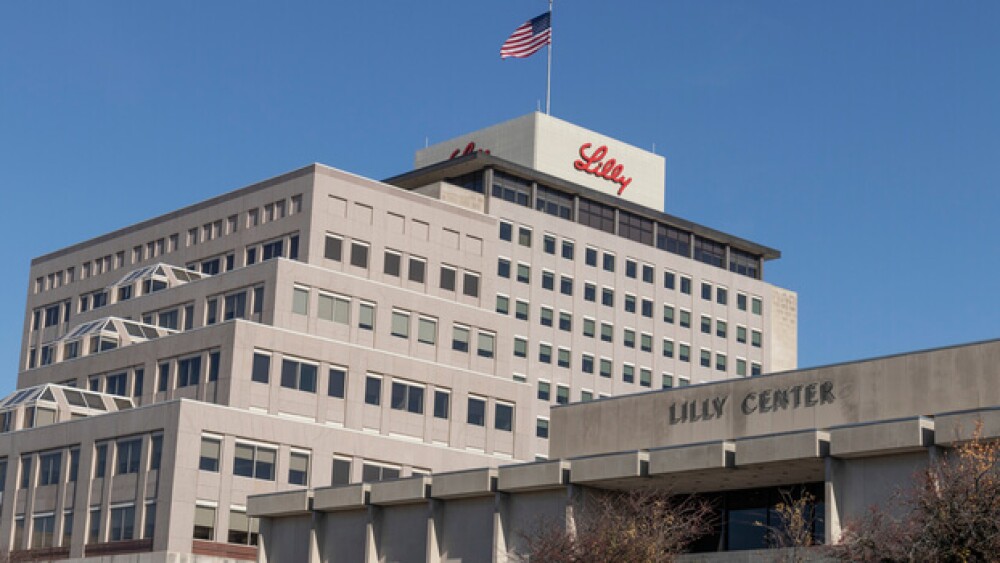Eli Lilly is undertaking a strategic transformation that will result in the formation of new business units.
Jonathan Weiss/Shutterstock
Eli Lilly is undertaking a strategic transformation that will result in the formation of new business units. The Indianapolis company’s Bio-Medicines unit will split into two separate businesses, with one focusing on neuroscience and one aiming at immunology.
The split will occur on Sept. 5. Eli Lilly said the changes announced today will enable the company to increase its focus on developing breakthrough therapies to millions of people who currently have unmet treatment needs.
This morning, Eli Lilly announced the leadership teams for each of the new business units.
Anne White, currently president of Lilly Oncology, will lead Lilly Neuroscience as senior vice president and president. White has helmed the company’s oncology business for several years and will now be responsible for Eli Lilly’s commercial products and late-stage assets in pain and neurodegeneration. Among the assets under White’s supervision is the closely watched experimental Alzheimer’s disease treatment donanemab, which received Breakthrough Therapy designation from the U.S. Food and Drug Administration (FDA) in June. Eli Lilly intends to submit a biologics license application to the FDA under the accelerated approval pathway later this year.
The oncology unit, currently helmed by White, will be under the leadership of Jacob Van Naarden, who is currently chief executive officer of Eli Lilly’s Loxo Oncology subsidiary. He will retain the CEO role and assume the role of president of Lilly Oncology.
The new immunology unit will be under the leadership of Patrik Jonsson, who is currently president of Lilly USA and the company’s chief customer officer. Jonsson, a 30-year veteran of the company, will oversee Lilly’s commercial products in dermatology, gastroenterology and rheumatology, as well as Phase III programs in these areas.
Two of the assets he will attempt to guide toward regulatory approval are mirikizumab for ulcerative colitis and lebrikizumab for atopic dermatitis. In June, Eli Lilly announced data that showed mirikizumab helped patients meet clinical remission of their UC symptoms after 12 weeks. For those patients, that meant the inflammation in their colon was controlled enough to provide a “near-normalization of symptoms” such as stool frequency and bleeding.
Just yesterday, Eli Lilly announced positive Phase III data for lebrikizumab in atopic dermatitis. As BioSpace reported, more than half of the Phase III patients with moderate to severe atopic dermatitis who received lebrikizumab achieved at least 75% clearance of their condition after 16 weeks.
Prior to his role with Lilly USA, Jonsson served as senior vice president and president of Lilly Bio-Medicines and general manager of Lilly Sweden, Scandinavia, Italy and Japan.
Eli Lilly CEO David Ricks said the leadership and organizational changes at the company will allow it to intensify its focus on providing therapeutics that can positively impact the lives of patients across the globe.
“Anne, Jake and Patrik’s extensive experience will bring the focus and agility necessary to lead the growth of our existing medicines and the global introduction of Lilly’s late-stage pipeline for the benefit of patients across a diverse set of medical conditions,” Ricks said in a statement.
In addition to the changes with the new business units, Eli Lilly also announced the retirement of Alfonso (Chito) Zulueta, senior vice president and president of Lilly International. Zulueta has served the company for three decades. Ilya Yuffa, currently serving as the senior vice president and president of Lilly Bio-Medicines, will succeed Zulueta and lead the company’s commercial operations in all markets outside the U.S., with the exception of Canada. Yuffa previously served as vice president of U.S. Diabetes for Lilly USA and president and general manager of Lilly’s Italy Hub.
Lilly Diabetes, a key business unit for the company, will continue to be under the guidance of Mike Mason.





